
Ahead of the Rio Olympics which get under way on Friday, here’s a look at ten memorable moments from the Olympic games.
Do you agree with our selections?
Get in touch and let us know, use #360fans on social media!
1. Tug-of-war, hot air ballooning, powerboating, rope climbing, tandem cycling and solo synchronised swimming all used to be Olympic sports at one stage – some not so long ago. So too was live pigeon shooting at the 1900 Games in Paris, which turned into a bit of a feathery bloodbath with over 300 unfortunate animals meeting an untimely end. It was soon decided that clay targets may be a friendlier option.
2. It took excruciating pain for Japan’s men’s team to win their fifth consecutive gymnastics team gold in 1976. Shun Fujimoto managed to break his kneecap with an awkward fall in his floor routine but did not want anyone to know about the injury – or to let his team down.
He bravely soldiered on, scoring 9.5 on the pommel horse and 9.7 on the rings before having to pull out of the competition. It was enough to help his team to the gold – by less than half a point.
That was the year 14-year-old Romanian Nadia Comaneci scored her seven perfect 10s in gymnastics, however, so Fujimoto’s heroics went largely unnoticed.
3. There are always plenty of clichés bandied about when it comes to sport – “fighting for his life”… “it’s a do-or-die” moment in the match.
But for one Olympic gold medallist, this would have been more meaningful than the rest. Tennis star R Norris Williams survived the sinking of the Titanic in 1912, although he lost his father in the tragedy.
Doctors threatened to amputate his legs after they were severely damaged from being in the freezing cold water for hours, but Williams refused and went on to win the US Open doubles title later that year – and a gold medal in the mixed doubles at the 1924 Olympics in Paris.
4. Rowing has provided some rather bizarre Olympic moments over the years – from rowers dropping their medals in the lake by mistake to stopping early because they thought they’d reached the finish line.
But the one that takes the cake is Australian Bobby Pearce, who in 1928 stopped mid-race in the heats of the single sculls to allow a duck and her ducklings to cross in front of him before continuing the race.
The duck family would have been happy to note that Pearce went on to win the gold medal in the final.
5. George Eyser left the 1904 Olympic Games in St. Louis with six medals – which would be an amazing feat in itself, without mentioning the fact that he achieved it with one wooden leg. Eyser lost his leg in a train accident but that didn’t stop him from competing. He won three golds – in the parallel bars, long horse vault and rope climbing, silver in the pommel horse and the combined competition and bronze on the horizontal bar.
104 years later, South African swimmer Natalie du Toit would become the next amputee to compete at the Olympics. She competed without her prosthetic though – in open water swimming.
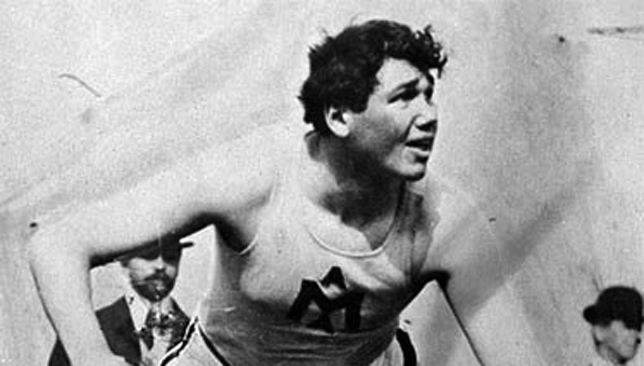
George Eyser.
6. Zimbabwe were the unlikely recipients of the gold medal the first time women’s field hockey was contested at the Olympic Games in 1980. Thanks to the US-led boycott of the Games, Russia weren’t left with much in the way of competition so they invited nations who hadn’t originally qualified – the newly independent nation of Zimbabwe being one of them.
Having endured a gruelling journey in a plane usually used to transport meat, the Zimbabweans arrived in Moscow via Lusaka and Bucharest and swept the competition aside to claim the gold. It would be 24 years before Kirsty Coventry won the nation’s next gold medal – in the 200m backstroke.
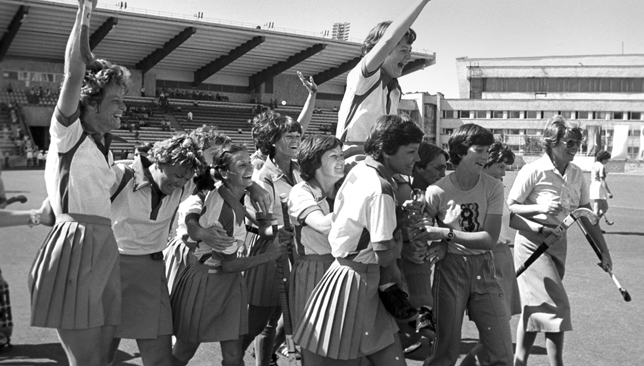
Zimbabwe.
7. It’s hard to believe such a basic error could have occurred as recently as 2000, but several highly fancied gymnasts in the women’s gymnastics competition completely botched their attempts at the vault. Some of them inexplicably fell on their faces when they expected to be producing gold-medal winning vaults until it was discovered that the vault horse had been set 5cm too low.
Red-faced Sydney organisers apologised profusely and the first and second-rotation gymnasts were allowed to take those vaults again.
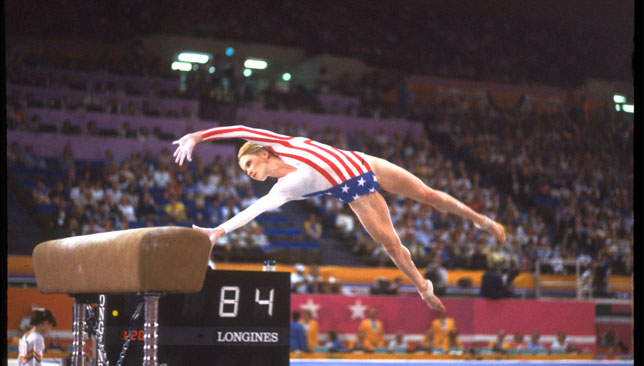
08 You could say Charlotte “Lottie” Dod was a bit of an all-rounder. Not only did the Englishwoman claim the silver medal in archery at the 1908 Games in London, but she also had five Wimbledon singles titles to her name and remains the youngest ever winner of the singles title – coming at the age of just 15.
Dod also captained the England women’s hockey team and if that wasn’t enough also won the British Ladies Golf Championship at Troon in 1904.
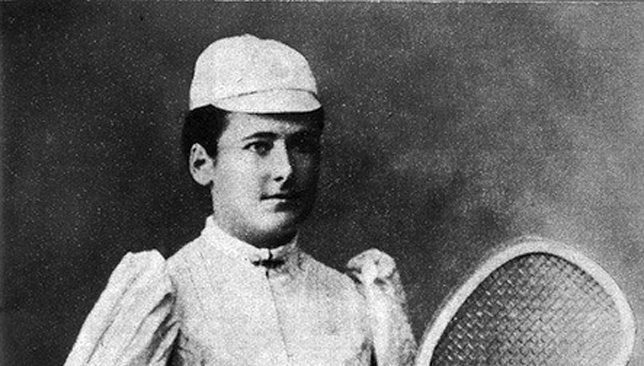
Charlotte “Lottie” Dod.
9 Despite breaking an Olympic weightlifting record, it wasn’t America gold medallist Stanley Stanczyk who proved to be the most memorable after the 1948 Games but rather the silver medallist, Harold Sakata.
Twenty years after his podium performance in London, the Japanese-American athlete became better known as the Bond villain, Oddjob, in the film Goldfinger.
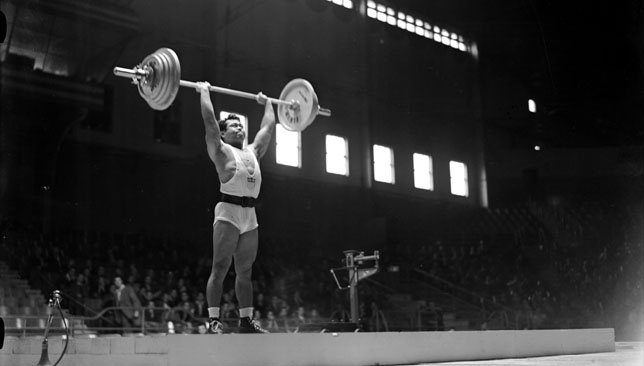
10 If you thought Bert le Clos was an overenthusiastic supporter of his gold medal-winning son, Jean Boiteaux can top that for sure.
After holding off a strong challenge from American Ford Konno the French swimmer, whose mother had also represented France in the Olympic pool, emerged as the surprise winner of the 400m freestyle in 1952. The crowd and gathered media became rather confused when a beret-clad old man jumped into the pool fully clothed in celebration.
It turned out to be Boiteaux’s jubilant father and the swimmer was lucky to escape disqualification.